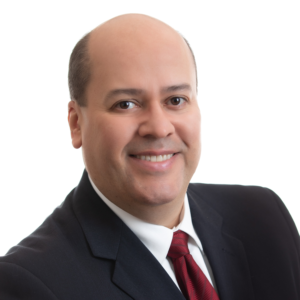If you are seriously change averse, you might want to reconsider a career in clinical trials. However, if you are excited about the prospect of “thinking outside the box” and “expanding the clinical trials toolbox to develop novel medical products for public consumption,” you’ve come to the right place, says Isaac Rodriguez-Chavez, PhD, MHSc, MSc, senior vice president for scientific and clinical affairs and head of the Strategy Center for Decentralized Clinical Trials and Digital Medicine, Drug Development Solutions, at ICON plc.
Looking to the future, Rodriguez-Chavez is a big proponent of positive and progressive change management to improve clinical trials tomorrow and beyond. “It requires finding a different way of thinking about testing the safety and efficacy of investigational medical products and how we conduct more efficient clinical trials while meeting the needs of patients, sites, and sponsors,” he says.
A big driver of change is the emergence of decentralized clinical trials (DCTs) in their hybrid onsite/offsite approaches, Rodriguez-Chavez says. “DCTs are here to stay, but they won’t replace all traditional clinical trials,” he notes. Like many others, however, he expects hybrid DCT models to grow more quickly than full DCTs, but says there is room and need for both.
“It is about developing the best trial design and optimally operationalizing it for a specific experimental medical product to test its safety and efficacy in real-world settings and with diverse populations,” he says.
Among other obstacles, DCT adherents and others are struggling to find a common language to discuss such trials (e.g., settling on the same definitions and terminologies), Rodriguez-Chavez says. The inconsistency is still confusing, but he notes that it is getting better. “There are still different levels of understanding of what DCTs are and what colleagues in the space mean when they use technical terms such as DCTs, virtual trials, siteless trials, or remote trials, to cite a few,” he cautions.
Rodriguez-Chavez, who left the U.S. Food and Drug Administration (FDA) in November 2020 as Officer, Clinical Research Methodology, Regulatory Compliance and Medical Policy Development, also says that the industry is looking to the FDA to issue more DCT guidance documents to help steer proper full and hybrid DCT usage in the clinical research field. “The regulatory aspect needs to be better understood and harmonized” in the U.S., he says, noting that two DCT guidance documents have been issued in Europe but not yet in the U.S.
The evolution of full and hybrids DCTs in the field supported by innovative technologies and digital health technologies (also known as digital wearable devices) is an exciting development, Rodriguez-Chavez says, and he’s a firm believer they will expand the reach of clinical trials, in part by making it easier for patients to participate. “These technologies can take some of the burden off patients, sites, and sponsors,” and make trials truly more efficient and cost-effective, he adds.
Many DCT technologies and concepts have been around since the beginning of the century, he notes, but “COVID-19 was a real catalyst” sparking increased usage. Currently, technology ecosystem innovation is at the forefront in terms of supporting DCTs and digital medicine. “We can now offer DCTs as a healthcare option (i.e., CRAACO or ‘clinical research as a care option’) for patients and” deliver the best from both the site- and home-based healthcare worlds, he says.
Author: Michael Causey



